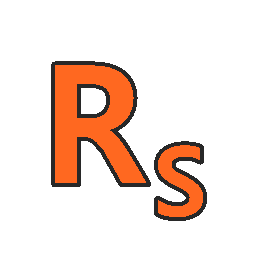About Course
General Chemistry is a basic course for a broad range of students from different fields of science and engineering. This course is designed to help you get a firm grasp of the most important topics in chemistry that you need to know to do great in your exams and classes.
By the end of the course, you’ll learn the principles and important concepts regarding the matter, atoms, solutions, phases, chemical reactions, equilibrium, kinetics, acids and bases and so much more. Moreover, there are many standard example questions so you can practice what you’ve learned and a step-by-step solution procedure that will teach you strategies to tackle various types of problems.
Who this course is for:
- Chemistry or Science major students
- Engineering students from Chemical Engineering
- Engineering students from Mechanical Engineering Material majors
- Engineering students from Material Engineering
- Students from some of the majors of Medicine and Pharmaceutical
- High School Students
- Anyone who wishes to expand their knowledge of chemistry
Course Content
General Chemistry
-
Introduction to Chemistry
00:00 -
Types of Matter: Elements, Compounds, and Mixtures
00:00 -
Measurement and Significant Figures
00:00 -
Scientific Notation and Dimensional Analysis
00:00 -
History of Atomic Theory
00:00 -
Nuclide Symbols: Atomic Number, Mass Number, Ions, and Isotopes
00:00 -
Balancing Chemical Equations
00:00 -
The Mole: Avogadro’s Number and Stoichiometry
00:00 -
Limiting Reagents and Percent Yield
00:00 -
Elemental Analysis: Empirical and Molecular Formulas
00:00 -
Kinetic Molecular Theory and the Ideal Gas Laws
00:00 -
Wave-Particle Duality and the Photoelectric Effect
00:00 -
Bohr Model of the Hydrogen Atom
00:00 -
Quantum Mechanics of the Electron
00:00 -
Quantum Numbers, Atomic Orbitals, and Electron Configurations
00:00 -
The Periodic Table: Atomic Radius, Ionization Energy, and Electronegativity
00:00 -
The Chemical Bond: Covalent vs. Ionic and Polar vs. Nonpolar
00:00 -
Naming Ionic Compounds
00:00 -
Lewis Dot Structures
00:00 -
VSEPR Theory and Molecular Geometry
00:00 -
Intermolecular Forces and Boiling Points
00:00 -
Thermochemistry: Heat and Enthalpy
00:00 -
Hess’s Law and Heats of Formation
00:00 -
Heat Capacity, Specific Heat, and Calorimetry
00:00 -
Phase Changes, Heats of Fusion and Vaporization, and Phase Diagrams
00:00 -
Solution Chemistry and Net Ionic Equations
00:00 -
Molarity and Dilution
00:00 -
Solubility and the Born-Haber Cycle
00:00 -
Molality and Colligative Properties
00:00 -
The Laws of Thermodynamics, Entropy, and Gibbs Free Energy
00:00 -
Kinetics: Initial Rates and Integrated Rate Laws
00:00 -
Energy Diagrams, Catalysts, and Reaction Mechanisms
00:00 -
Chemical Equilibria and Reaction Quotients
00:00 -
Le Chatelier’s Principle
00:00 -
Valence Bond Theory, Hybrid Orbitals, and Molecular Orbital Theory
00:00 -
Acids and Bases, pH and pOH
00:00 -
Acid-Base Equilibria and Buffer Solutions
00:00 -
Acid-Base Titration
00:00 -
Oxidation-Reduction Reactions
00:00 -
Electrochemistry
00:00 -
Nuclear Reactions, Radioactivity, Fission and Fusion
00:00 -
Accuracy and Precision for Data Collection
00:00 -
Converting Between Temperature Scales (Celsius, Fahrenheit, and Kelvin)
00:00 -
Visualizing Molecular Geometry With 3D Software
00:00 -
Calculating Percent Error
00:00 -
Nomenclature of Oxyacids
00:00 -
Nomenclature of Hydrated Salts
00:00 -
Writing Chemical Equations in Words
00:00 -
The Law of Conservation of Matter
00:00 -
Expressing Concentration by Mass Percent
00:00 -
Calculating the Formulas of Hydrated Salts
00:00 -
What Are Electrolytes?
00:00 -
Calculating Ion Concentrations in Solution
00:00 -
Neutralization Reactions
00:00 -
Dalton’s Law and Partial Pressures
00:00 -
What Are Standard Conditions?
00:00 -
Molar Gas Volume: Stoichiometry With Gases
00:00 -
Kinetic Molecular Theory and its Postulates
00:00 -
Temperature and Gas Solubility
00:00 -
Balancing Redox Reactions in Acidic and Basic Conditions
00:00 -
Pseudo Noble Gas Electron Configurations
00:00 -
Complex Ion Formation
00:00 -
Lattice Structures in Ionic Solids
00:00 -
Covalent Bond Energy and Length
00:00 -
Limitations of VSEPR Theory
00:00 -
Examples of s-p Mixing in Molecular Orbital Theory
00:00 -
Measuring Pressure With Barometers and Manometers
00:00 -
Non-Ideal Gases and the Van der Waals Equation
00:00 -
Viscosity, Cohesive and Adhesive Forces, Surface Tension, and Capillary Action
00:00 -
Types of Colloids and Their Properties
00:00 -
Solubility Product Constant (Ksp)
00:00 -
Predicting Precipitation With Ksp Values
00:00 -
Selective Precipitation
00:00 -
The Common Ion Effect
00:00 -
Coordination Compounds: Geometry and Nomenclature
00:00 -
Crystal Field Theory
00:00 -
Radiometric Dating: Carbon-14 and Uranium-238
00:00 -
Conductivity and Semiconductors
00:00 -
Spectrophotometry and Beer’s Law
00:00 -
The Chemistry of Air Purification
00:00
Student Ratings & Reviews

No Review Yet
